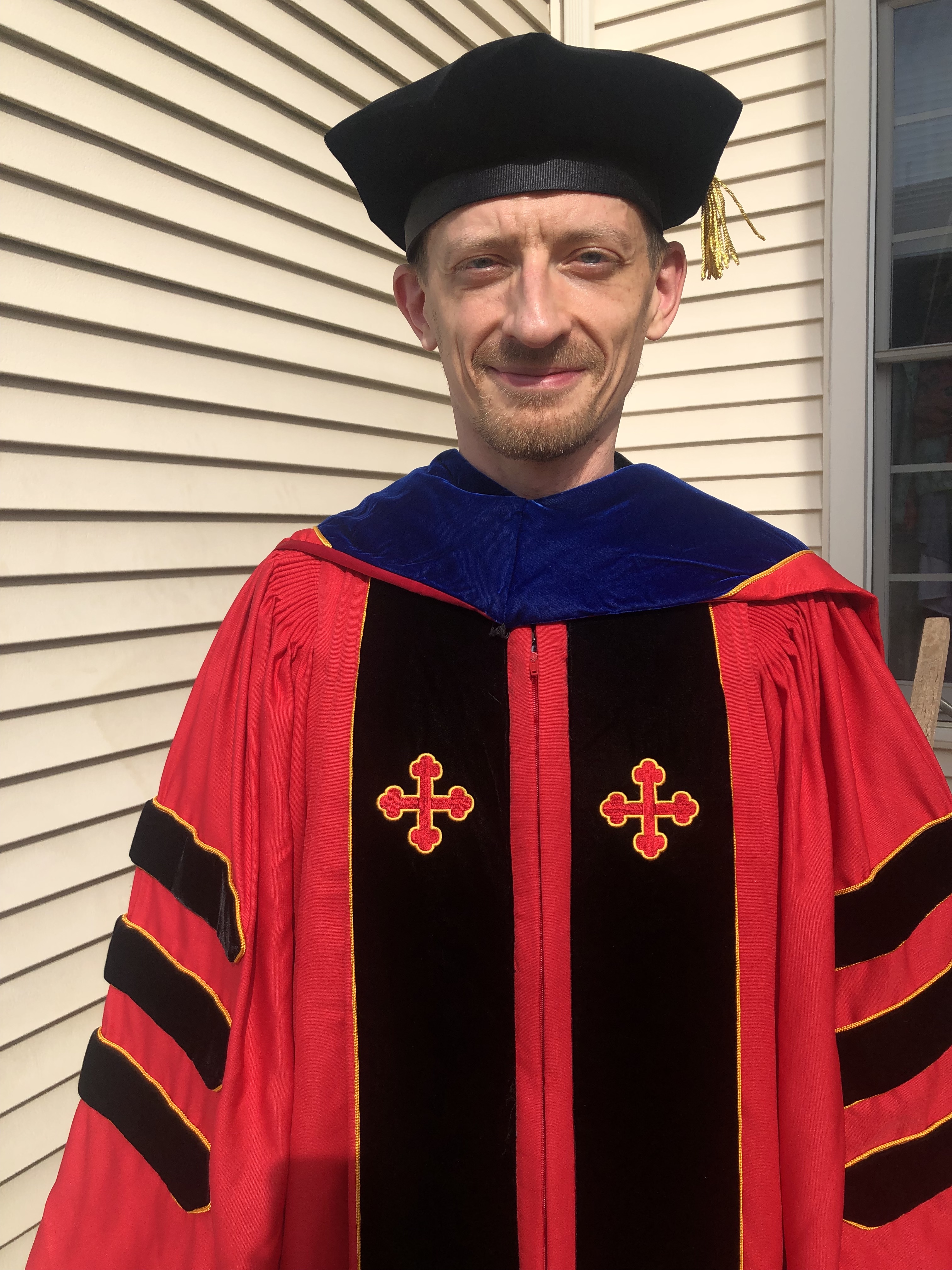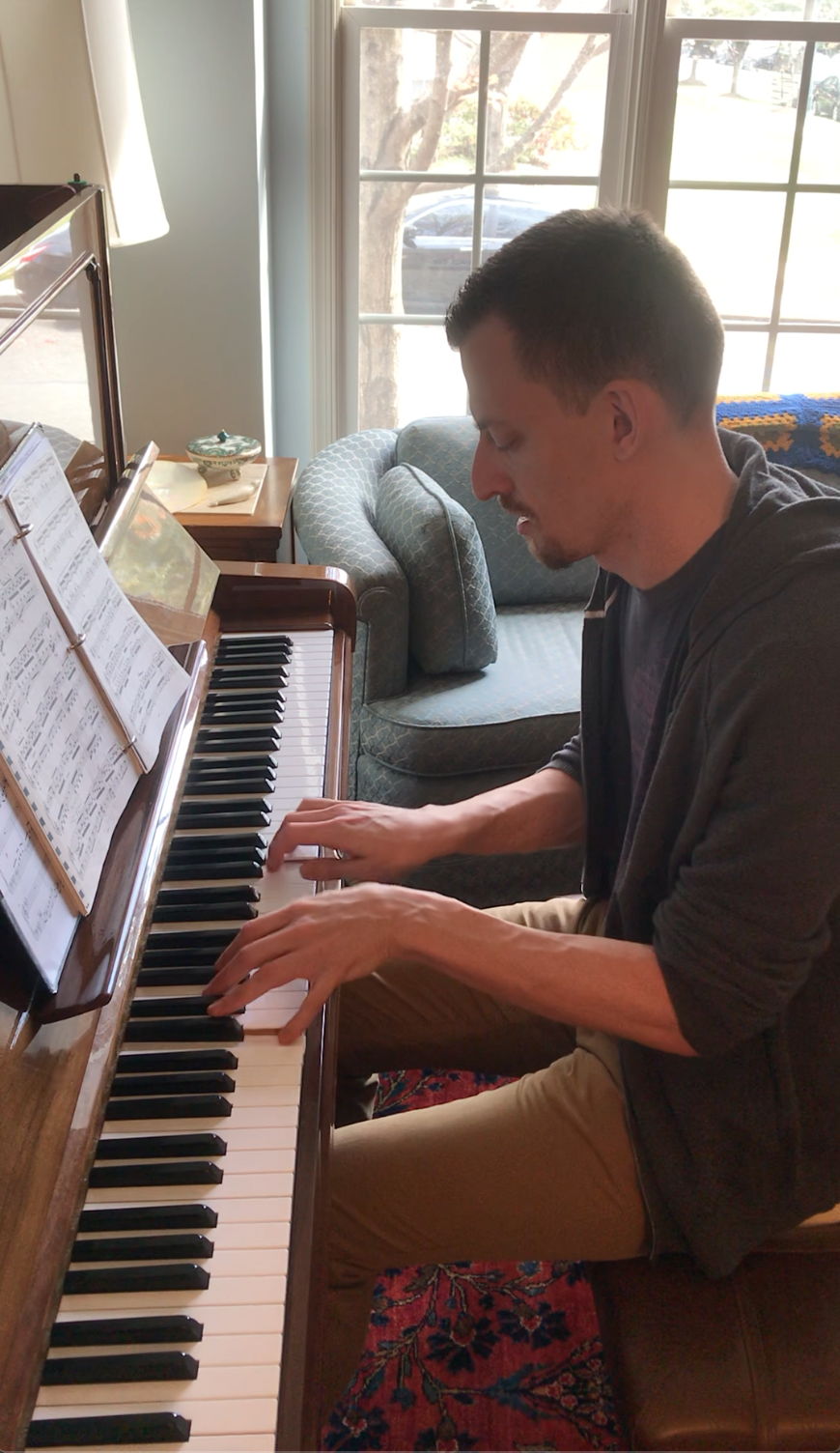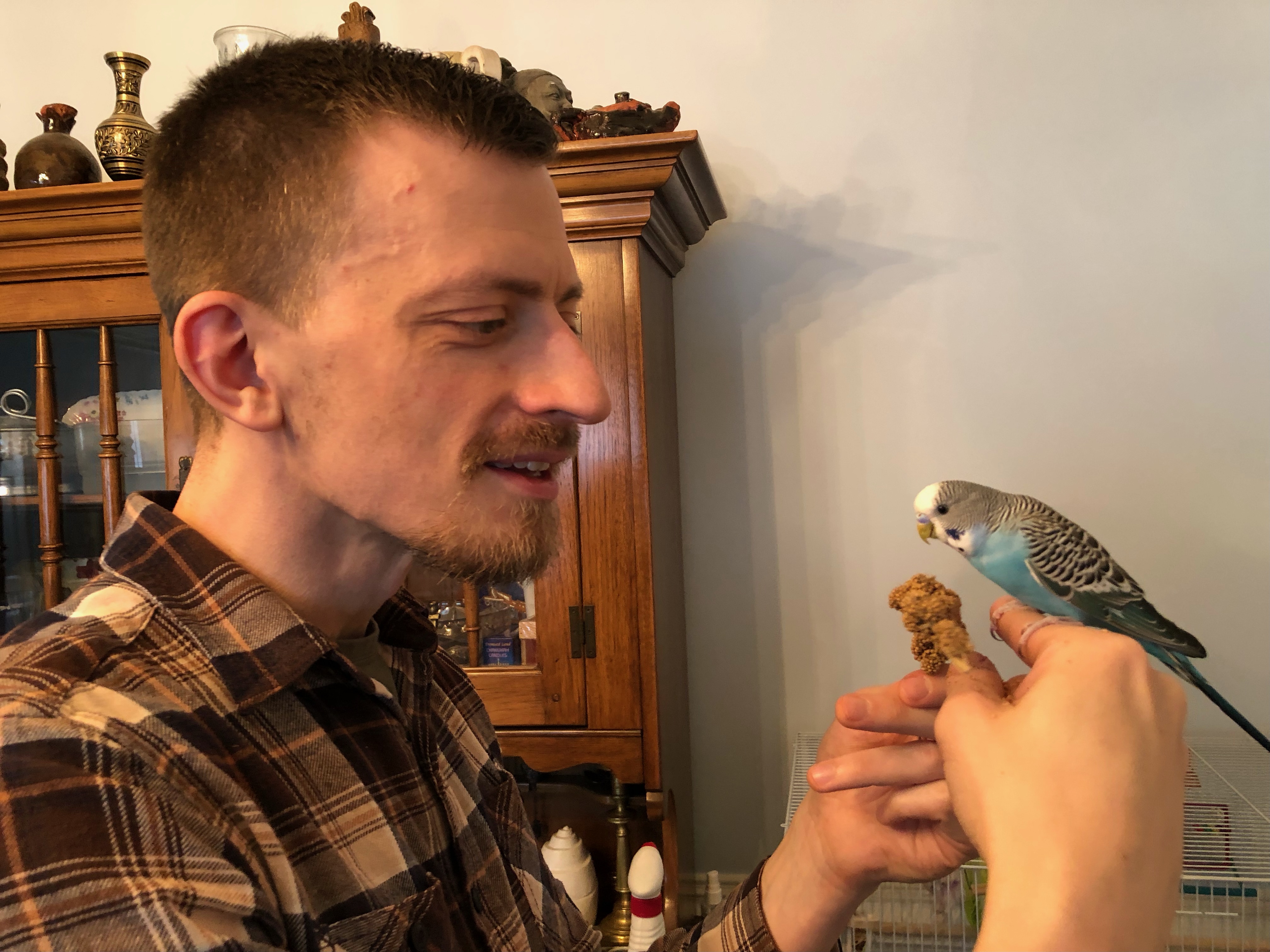David Russell '24
 Current Position: Visiting Assistant Research Scientist at UMD’s Earth System Science Interdisciplinary Center (ESSIC)
Current Position: Visiting Assistant Research Scientist at UMD’s Earth System Science Interdisciplinary Center (ESSIC)
PhD Dissertation Title: A Data Assimilation System for Lake Erie Based on the Local Ensemble Transform Kalman Filter
PhD Advisor: Kayo Ide
Application Area (during AMSC studies): Atmospheric and Oceanic Science
What is your current position? How did you come to know about this position, and what do you like about it?
I am a Visiting Assistant Research Scientist at UMD’s Earth System Science Interdisciplinary Center (ESSIC), but I work on-site as a contractor at NASA’s Global Modeling and Assimilation Office (GMAO), at the Goddard Space Flight Center (GSFC) in Greenbelt, MD. My work is focused on ocean data assimilation, specifically on using altimetry data from one of NASA’s newest satellites to help improve forecasts of global climate phenomena such as El Niño/La Niña. I found the position on ESSIC’s job site after my advisor drew my attention to it.
I feel lucky to have landed this job, as it is exactly the type of work I envisioned doing when I started grad school, even though it seemed like a pipe dream back then! The work is challenging, but it gives me the opportunity to directly contribute to better understanding of some of the biggest challenges facing humanity. NASA GSFC is an inspiring place, full of bright people with similar values to mine, working on interesting projects. It is consistently voted among the top government agencies to work for, and it generally promotes good work-life balance.
What are your favorite memories of your graduate school experience? What about from the AMSC program specifically?
I enjoyed the balance that came from teaching. Research involved a pretty steep learning curve for me, so it was nice to spend some of my day on  material that I could feel much greater mastery over. Teaching well takes time and energy (like anything else), but it can be immensely rewarding when a student gives a heartfelt thanks or leaves a good teaching review.
material that I could feel much greater mastery over. Teaching well takes time and energy (like anything else), but it can be immensely rewarding when a student gives a heartfelt thanks or leaves a good teaching review.
Socially, I enjoyed some self-organized social outings with my Scientific Computation cohort, as well as various on-campus opportunities like intramural soccer, ballroom dancing at Stamp, and a solar eclipse viewing party with multiple telescopes.
In what ways did the AMSC program (specifically outside of basic academics) help prepare you for your current position?
Going to research seminars organized by my advisor really helped to give me a feel for my chosen field—its jargon, history, general themes, recent developments, major institutions and people, and so on. Having to present there every year (as well as in student seminars) helped me to refine my scientific presentation skills. I also benefited from informal guidance from my advisor and the AMSC program directors, as well as CV/resume critiques for AMSC students.
What advice would you give to current students?
Make friends in AMSC as well as in your specific application area, as you may need to call on their help along the way. Shop around for advisors and projects, starting as early as you can. Make sure that your advisor not only is someone you get along with well, but also has a viable research project that will get you out the door in a timely fashion. If something doesn’t seem right in the first couple of years, you may still be able to switch. Once you are committed to a project, focus on it as much as you can, to speed your progress. Learn to say “no” to any unnecessary requests that slow you down in your progress to the degree. Work efficiently, and regularly remind yourself that this degree will greatly improve your career prospects!

